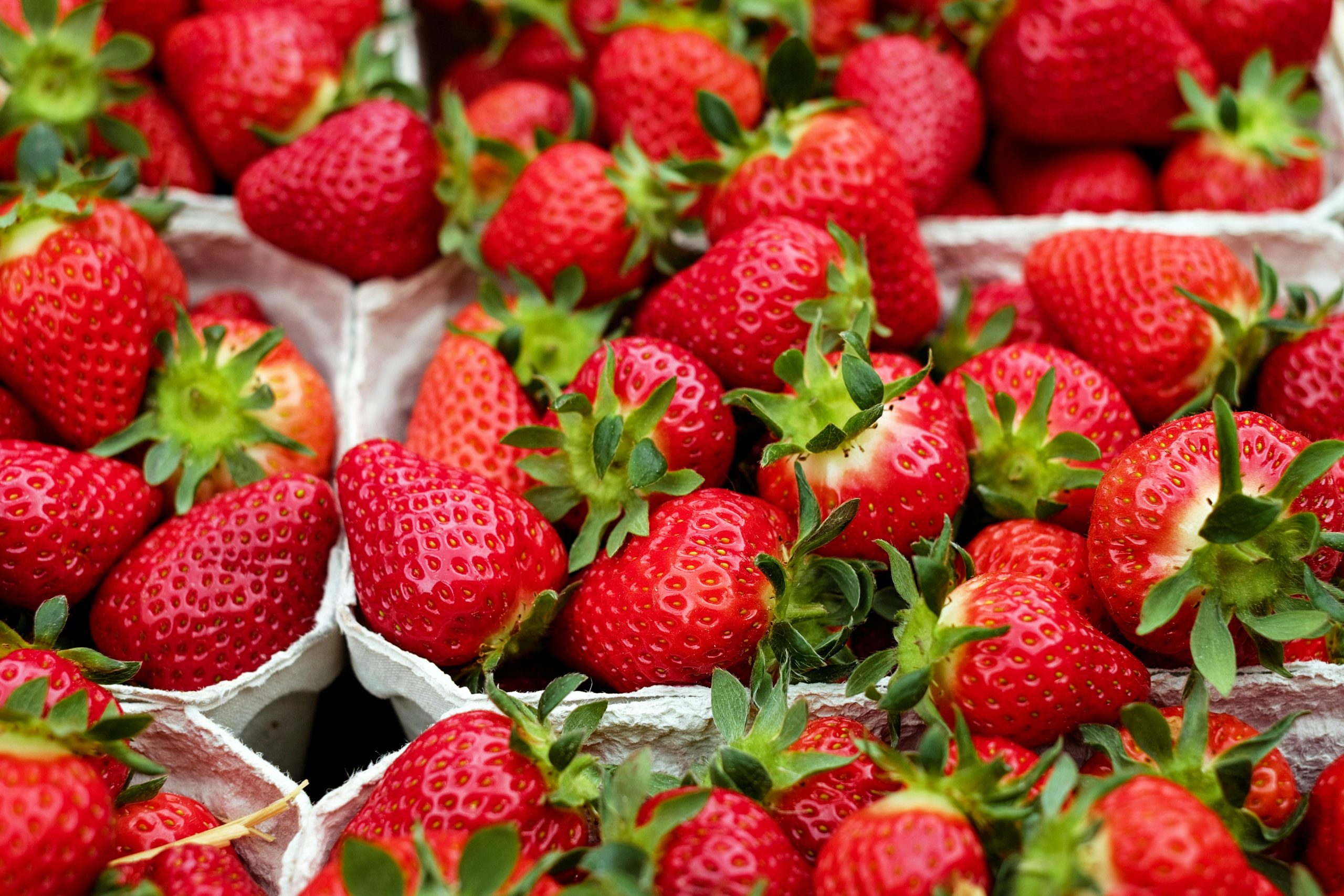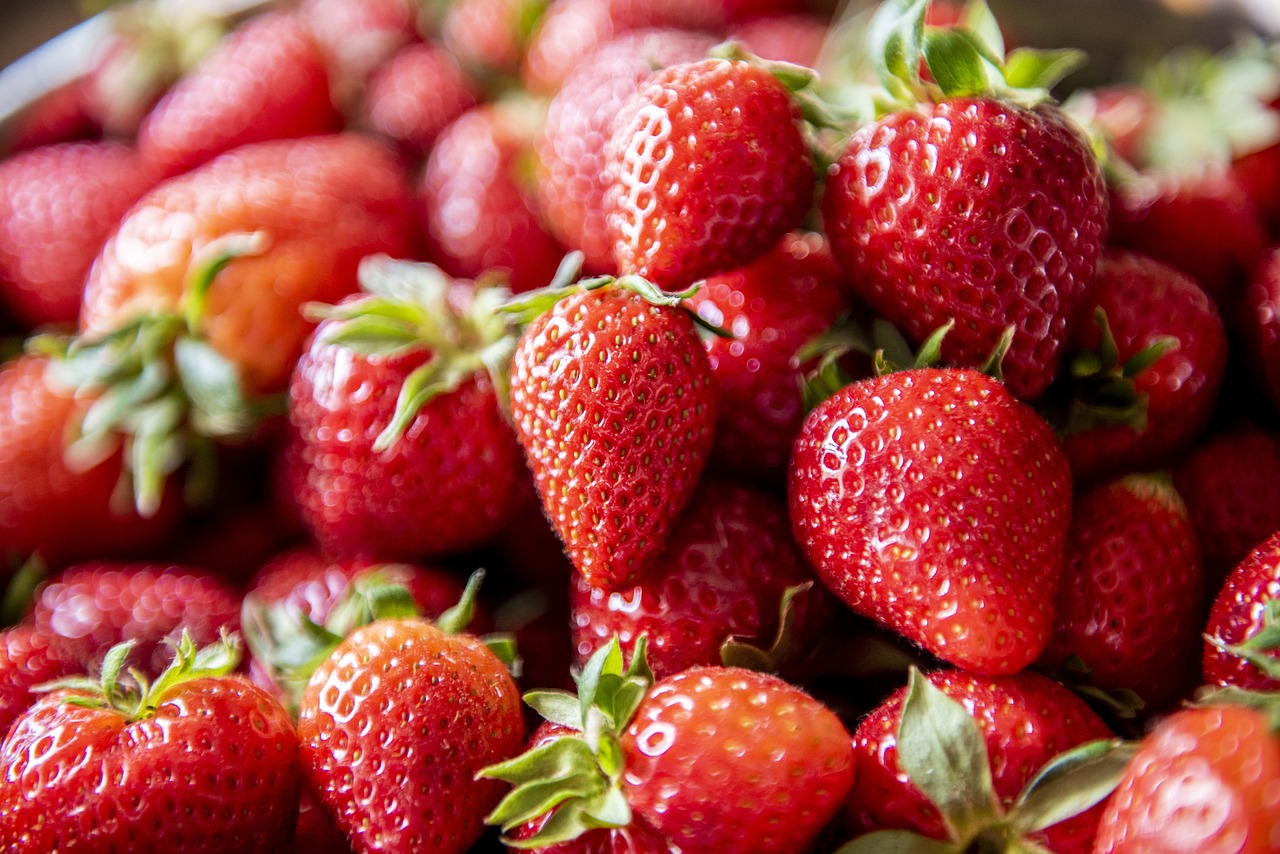As a dog owner, you likely wonder about the safety and benefits of sharing various foods with your furry companion. One common question is, “Are strawberries safe for dogs?” Strawberries are a beloved fruit among humans, praised for their sweet flavor and numerous health benefits. However, when considering whether to feed strawberries to dogs, it’s crucial to understand both the potential benefits and risks. This concern is widespread among pet owners who want to ensure their dog’s diet is nutritious and safe.
In this article, we will delve into the nutritional advantages of strawberries for dogs, the possible hazards, how to safely incorporate strawberries into their diet, and suggest some alternative fruits that are safe and healthy for canine consumption.

Nutritional Benefits of Strawberries for Dogs
Strawberries are packed with nutrients that can be highly beneficial for dogs. These red berries are rich in Vitamin C, which helps boost the immune system and fight infections. They also contain Vitamin B1, Vitamin B6, and Vitamin K, which support various bodily functions, including energy metabolism, nervous system health, and blood clotting. Additionally, strawberries are a good source of dietary fiber, which aids in digestion and helps maintain a healthy weight. The antioxidants in strawberries, such as flavonoids and ellagic acid, help combat free radicals and support overall cellular health. Strawberries also contain manganese, essential for bone health and metabolic functions.
Find The Best Fruits And Veggies For Your Dog
Potential Risks of Feeding Strawberries to Dogs
While strawberries offer several health benefits, there are potential risks to consider. One of the primary concerns is the high sugar content in strawberries, which can lead to weight gain and dental issues if consumed in large quantities. Overconsumption of strawberries may also cause digestive issues such as stomach upset, vomiting, or diarrhea in some dogs. Additionally, some dogs might be allergic to strawberries, resulting in symptoms like itching, swelling, or gastrointestinal distress. Introducing strawberries slowly into your dog’s diet and monitoring for any adverse reactions is crucial. Furthermore, the small seeds on strawberries can pose a minor choking hazard, especially for small dogs.
How to Safely Feed Strawberries to Dogs
To safely feed strawberries to your dog, follow these guidelines. Start by thoroughly washing the strawberries to remove any pesticides or chemicals. Remove the leaves and stems, as these parts can be difficult for dogs to digest. Cut the strawberries into small, bite-sized pieces to make them easier for your dog to eat and reduce the risk of choking. You can serve the fresh or slightly frozen strawberry pieces as a refreshing treat on a hot day. Avoid adding sugar, syrups, or other additives that could harm dogs. Begin with a small amount to see how your dog reacts and gradually increase the portion if no adverse effects are observed. If your dog shows any signs of discomfort or allergic reactions, discontinue feeding strawberries immediately and consult your veterinarian.
Learn About 19 Fruits And Vegetables That Are Bad For Dogs
Alternatives to Strawberries for Dogs
Several safe and nutritious options exist if you’re looking for other fruits to add variety to your dog’s diet. Blueberries are an excellent choice, as they are low in calories and antioxidants, which can support your dog’s immune system. Apples, with the seeds and core removed, provide vitamins A and C and fiber. Watermelon, with its high water content, is perfect for keeping your dog hydrated, but be sure to remove the seeds and rind. Bananas are rich in potassium and can be a sweet treat in moderation. These fruits can provide a range of vitamins and minerals that contribute to your dog’s overall health.
Explore Whether Dogs Can Safely Eat Oranges

Final Thoughts: Are Strawberries Safe For Dogs?
So, are strawberries safe for dogs? The answer is yes but with some precautions. Strawberries can be a nutritious and tasty addition to your dog’s diet when given in moderation and prepared correctly. They offer numerous health benefits, including vitamins, fiber, and antioxidants, but it’s important to be aware of the potential risks, such as high sugar content, digestive issues, and allergic reactions. Following the safety guidelines and monitoring your dog’s response, you can safely introduce strawberries into their diet. Additionally, consider incorporating other safe fruits to ensure a well-rounded and nutritious diet for your furry friend. Always consult your veterinarian before significantly changing your dog’s diet to ensure their health and well-being.
 Toledo, United States.
Toledo, United States.